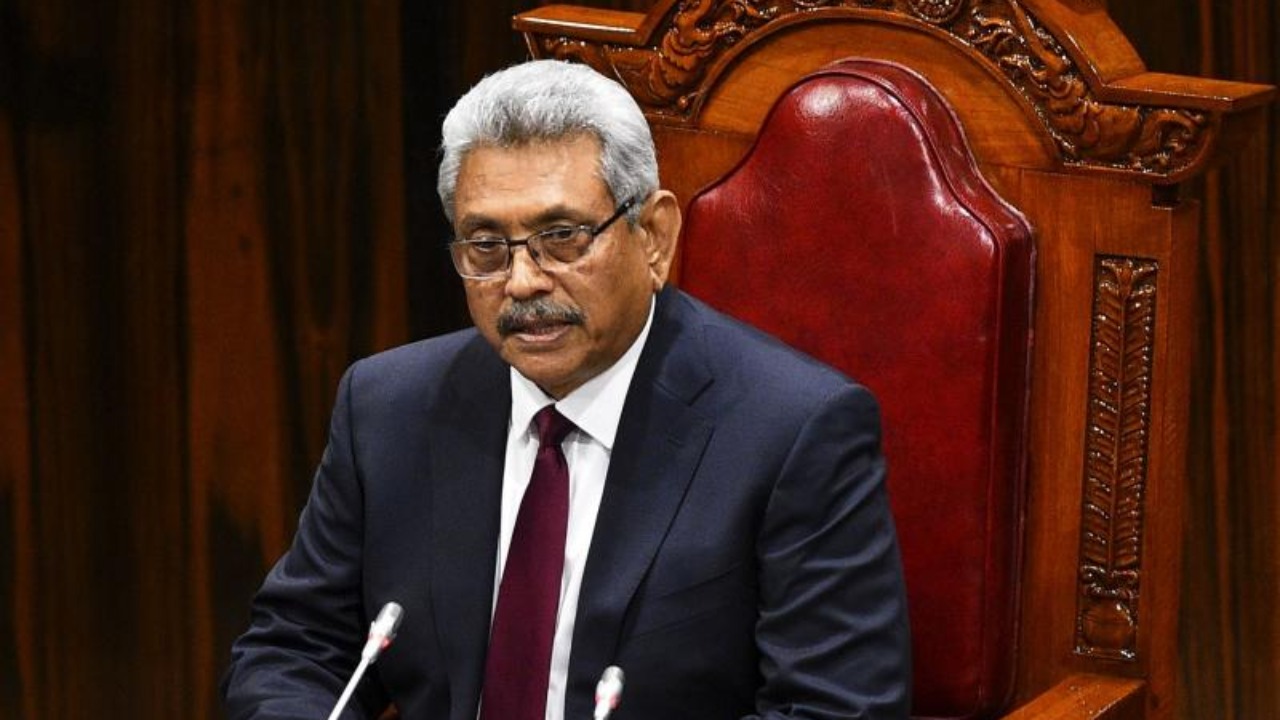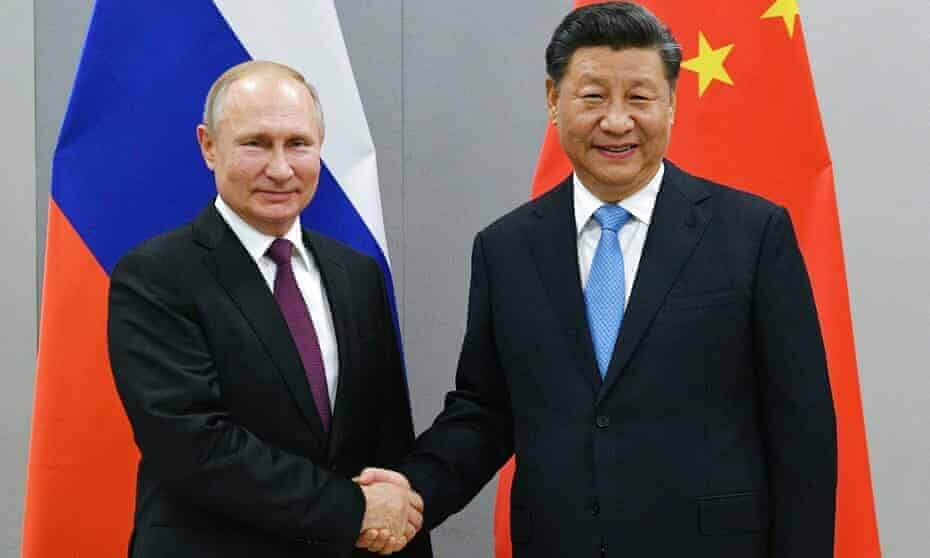South Asia
An investigation by the Pentagon concluded that the Kabul airport attack, which occurred in August 2021 during the last few days of the US troops’ withdrawal from Afghanistan, was orchestrated by a single suicide bomber. The violent incident had resulted in 172 deaths, including 13 Americans. [France 24]
Speaking at an event organised to celebrate Sri Lanka’s Independence Day, President Gotabaya Rajapaksa urged Sri Lankan expatriates to “invest in their homeland” and help the recovery of the cash-strapped economy. Currently, the government is struggling to import essential items such as petroleum and food due to ongoing foreign exchange shortage in the country. [Al Jazeera]
Central Asia and the Caucasus
Journalist Yelena Milashina of Novaya Gazeta has temporarily left Russia after Chechen strongman Ramzan Kadyrov recently issued death threats against her. Milashina, who covers human rights abuses in Chechnya, has said that she will continue to write about the Kadyrov regime’s abuse of women, human rights activists and the LGBT+ community from abroad. [RFE/RL]
The European Union’s (EU) Energy Commissioner Kadri Simson visited Azerbaijan on Friday to discuss the supply of natural gas in the event of Russia cutting supplies to Europe if war with Ukraine breaks out. Simson met with Azerbaijani President Ilham Aliyev and told him that the EU wants “the volume of gas exported from Azerbaijan to Europe to reach 10 billion cubic metres.” [RFE/RL]
East and Southeast Asia
Taiwan on Saturday criticised the timing of Chinese President Xi Jinping’s meeting with Russian President Vladimir Putin before the start of the Winter Olympics as “contemptible.” Taiwan said that China and Russia’s “no limits” partnership was bringing shame to the spirit of the Games. During the meeting, both leaders had backed each other’s governments over stand-offs on Ukraine and Taiwan and vowed to collaborate more against the West. [The Straits Times]
Voter surveys in the Philippines showed Ferdinand Marcos Jr, son and namesake of former dictator Ferdinand Marcos, heading towards a landslide victory in the May 9 general elections. [The Straits Times]
Europe
Cabinet minister Steve Barclay was appointed by British Prime Minister Boris Johnson as his Chief of Staff after he attempted to make changes to his team after attracting widespread criticism for his officials attending several lockdown-violating parties in 2020 and 2021. The pressures on Johnson increased as four of his top aides, including his head of policy Munira Mirza, stepped down from their positions. [Reuters]
On Monday, French President Emmanuel Macron will fly to Moscow to meet with Russian President Vladimir Putin in an effort to de-escalate tensions over Ukraine. Macron will follow that up with a visit to Kyiv on Tuesday to meet his Ukrainian counterpart Volodymyr Zelensky. Sources close to Macron suggest his meeting with Putin is a “throw of the dice” and also an attempt to freeze the situation in Ukraine until the completion of the French presidential elections in April this year. France, along with Russia, Ukraine and Germany are part of the Normandy Format group, which drafted the Minsk Protocol following Moscow’s invasion of Crimea in 2014. [France 24]
Latin America and the Caribbean
Costa Ricans headed to the polls on Sunday to vote for a new president as the country has been hit by high unemployment, a severe COVID-19 crisis and several public corruption scandals. The elections are yet to see a clear favourite amongst the 25 candidates. [Associated Press]
Venezuela’s Supreme Court on Saturday upheld lengthy sentences for six American oil executives who were detained in 2017 over corruption charges. [Associated Press]

Middle East and North Africa (MENA)
Turkish President Recep Tayyip Erdoğan said on Saturday that both he and his wife have tested positive for COVID-19. “Thankfully, we’re experiencing slight symptoms that we have learned is the omicron variant,” he said. [Associated Press]
Tunisian President Kais Saied on Sunday dissolved the Supreme Judicial Council (SJC), a top independent judicial watchdog, after accusing the Council members of bias and corruption. Last month, Saied cancelled all financial privileges for members of the SJC. Critics have said that his decision will curtail the independence of the judiciary. [Al Jazeera]
North America
On Friday, the United States (US) Navy confirmed that one candidate died from its Navy SEAL assessment program following an intense phase of initial training known as ‘Hell Week’ and another candidate, who was hospitalised, is reported to be in a stable condition now. In a statement, the Naval Special Warfare command said the death is under investigation, adding that the candidates were not actively training when they reported the symptoms. [NBC News]
The lower chamber of the United States (US) Congress on Friday passed the “America COMPETES Act of 2022,” a bill that aims to increase America’s competitiveness with China, particularly with regards to semiconductor manufacturing. The bill was passed with a narrow 222-210 vote with majority of the support coming from the Democrat lawmakers, along with one Republican. The bill allocates $300 billion funds for research and development, including $52 billion subsidies in semiconductor manufacturing and research. [Reuters]
Oceania
On Monday, Australia’s Prime Minister Scott Morrison confirmed that the country will open its international borders to tourists on February 21, two years after Canberra closed its doors to the world at the onset of the COVID-19 pandemic. Morrison stressed that people entering Australia must be double vaccinated, saying, “That’s the rule. Everyone is expected to abide by it.” Morrison made it clear that even if people have the right visa requirements, their entry is subject to Australia’s vaccine mandate referring to the recent Novak Djokovic saga as an example. [ABC News]
On Sunday, Australia’s Department of Fire and Emergency Service faced an “unprecedented” emergency as bushfires ravaged three regions of Western Australia. Deputy Commissioner Craig Waters confirmed that four fires burning across Western Australia reached emergency levels in the last two days, saying, “It’s been an extremely testing weekend for hundreds of career and volunteer firefighters across the state.” One of the fires was reported to be covering an area six times the size of Perth. Several homes and businesses were burned down as residents fled. [The Sydney Morning Herald]
Sub-Saharan Africa
South Sudan’s oil production has plummeted from the previous 170,000 barrels per day (bpd) to 156,000 bpd due to the negative impact of the COVID-19 pandemic and heavy flooding since 2020. 95% of the country’s revenue is dependent on oil. [The East African]
Guinea’s transitional assembly held its inaugural session on Saturday, five months after the military ousted democratically-elected President Alpha Conde. The assembly’s goal is to organise a return to civilian rule. [Al Jazeera]

